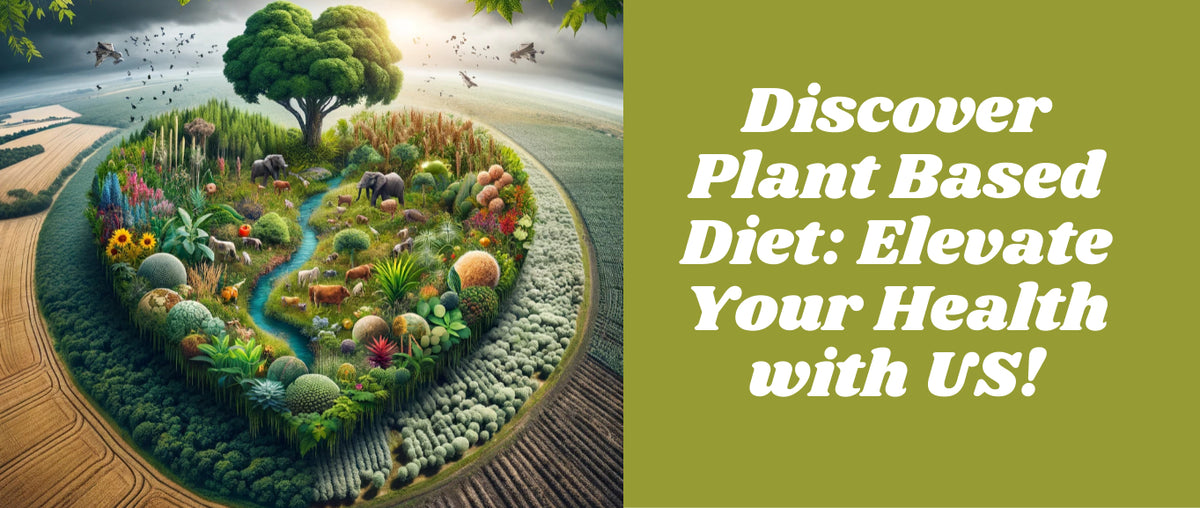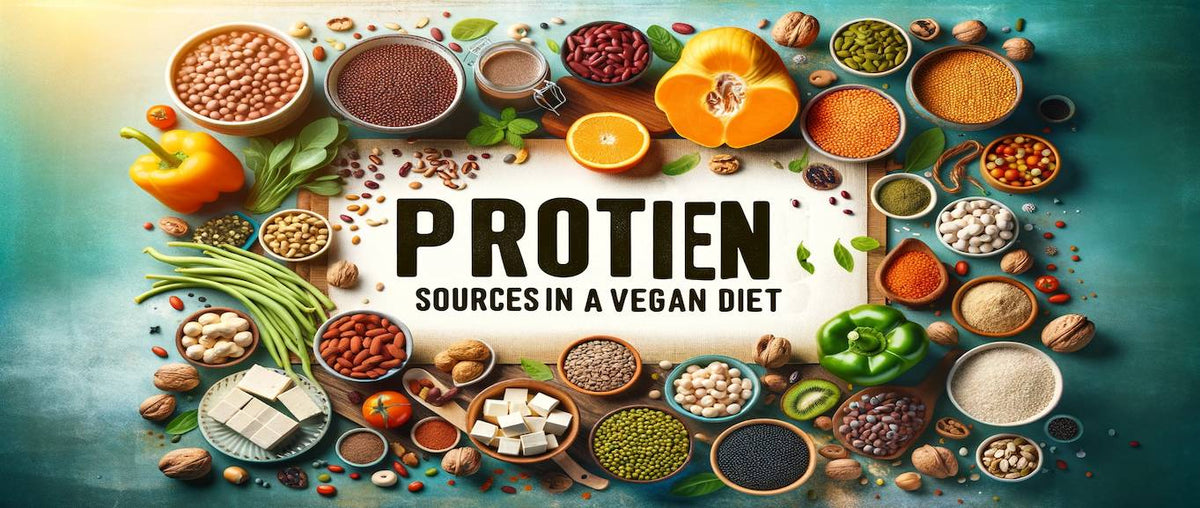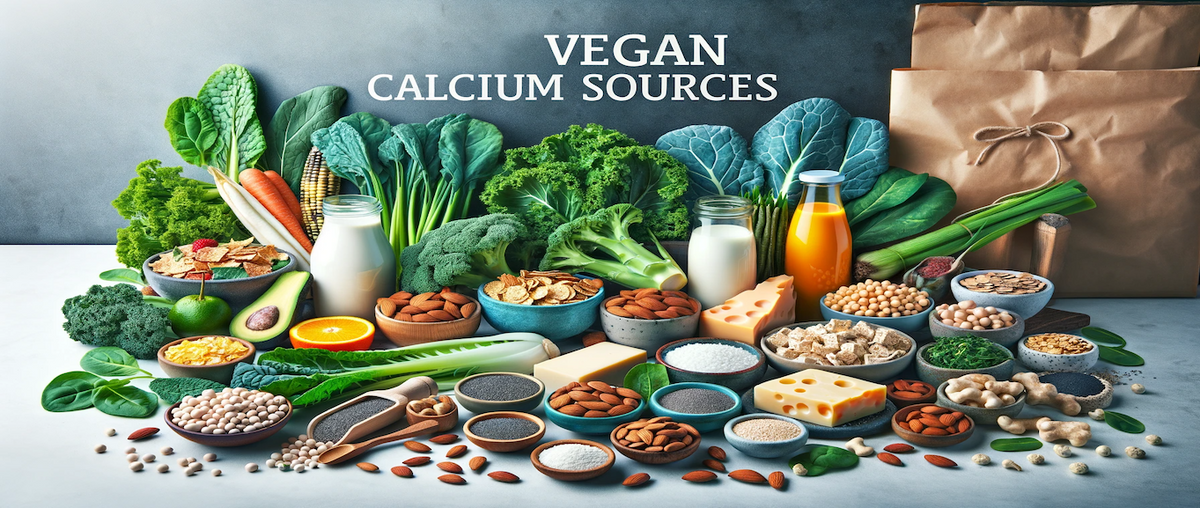Plant Based Diet
A plant based diet focuses on foods primarily from plants. This includes not only fruits and vegetables, but also nuts, seeds, oils, whole grains, legumes, and beans. It doesn't mean that you are vegetarian or vegan and never eat meat or dairy. Rather, you are proportionately choosing more of your foods from plant sources.
Key Takeaways
- Health Benefits: Adopting a plant-based diet can significantly improve your heart health and facilitate easier weight management due to lower calorie intake and higher fiber content.
- Nutrient Rich: A well-planned plant-based diet provides all necessary nutrients, such as protein, iron, calcium, and omega-3 fatty acids, essential for overall health and well-being.
- Diverse Diet Types: There are different types of plant-based diets including vegan, vegetarian, and flexitarian, each offering flexibility depending on personal health goals and ethical considerations.
- Preventive Health: Plant based diets are beneficial for people with various health conditions like high blood pressure, diabetes, and obesity, and can help in preventing chronic diseases.
- Easy Transition: Transitioning to a plant-based diet can be made simpler by gradually incorporating more fruits, vegetables, and plant-based proteins into meals, along with using healthy snacks and creative meal planning.
What is a Plant-Based Diet?
Definition and Types
A plant-based diet prioritizes plant-derived foods like fruits, vegetables, grains, nuts, seeds, and legumes, while minimizing or excluding animal products altogether. People choose this dietary pattern for various reasons, including health benefits, environmental impact, or ethical considerations concerning animal welfare. There's flexibility within plant-based eating, with some variations allowing occasional animal products.
- Vegan: No animal products whatsoever.
- Vegetarian: Includes dairy and eggs.
- Flexitarian: A primarily vegetarian diet that occasionally includes meat or fish.

Mediterranean and Vegetarian Diets
The Mediterranean diet is largely plant-based, emphasizing fruits, vegetables, whole grains, beans, nuts, and seeds. It includes moderate amounts of dairy products and eggs. This diet is renowned for its benefits in heart health and is considered one of the best foods for weight loss.
Vegetarian diets are similar but may include more dairy and eggs. Both these diets focus on plant-derived foods but allow for flexibility depending on personal preference and nutritional needs.
What is a Whole-Food, Plant-Based Diet?
Focus on whole, minimally processed foods: This means prioritizing foods that are close to their natural state, like fruits, vegetables, whole grains, legumes, nuts, and seeds. Minimally processed means little to no added ingredients, sugars, or unhealthy fats.
Nutrient-dense: These foods pack a punch in terms of vitamins, minerals, fiber, and other beneficial compounds. They nourish your body and support its functions.
Prioritizes health and wellness: This diet aims to promote overall well-being by providing the nutrients your body needs to thrive.
Supports muscle recovery and sustained energy: By choosing whole foods, you're giving your body the building blocks to repair muscle tissue after exercise and providing long-lasting energy throughout the day.
Foods to Eat on a Whole-Foods, Plant-Based Diet
A whole-foods, plant-based diet includes a variety of foods:
- Vegetables: A base of your meals, loaded with nutrients.
- Fruits: Natural sweetness and fiber.
- Legumes: Essential source of protein and fiber.
- Seeds and Nuts: Including cashew butter, a delicious and nutritious spread.
- Whole grains: Brown rice, oats, and barley provide essential energy.
This diet excludes or minimizes processed foods, oils, and sugars.
Who is a Plant-Based Diet Right for?
This diet is suitable for almost anyone looking to improve their health. It's particularly beneficial for those with high blood pressure, diabetes, cardiovascular disease, or obesity. Plant-based diets are rich in fiber, vitamins, and minerals, supporting sustained health and prevention of chronic diseases.
Also Read
Health Benefits of a Plant-Based Diet
Easy Weight Management
Adopting a plant-based diet can be one of the most effective approaches for weight loss and maintaining a healthy weight. Plant-based foods are typically lower in calories but higher in fiber, which helps keep you feeling full longer. By focusing on plant-based foods, you inherently consume fewer calories while still enjoying ample portions, aiding in natural weight management.
Improve Heart Health
A plant-based diet is incredibly beneficial for cardiovascular health. Foods rich in fiber, antioxidants, and healthy fats help to reduce blood pressure, lower cholesterol, and improve blood lipid levels. Diets rich in nuts, seeds, fruits, and vegetables, like the Mediterranean diet, have been shown to significantly reduce the risk of heart disease. Including Probiotic Drinks like kombucha, which contains heart-healthy antioxidants, can also contribute to a heart healthy diet.
Nutritional Guidelines
Essential Nutrients in a Plant-Based Diet
Transitioning to a plant-based diet doesn't mean you will be deficient in essential nutrients. However, it's important to focus on including a variety of foods to meet your nutritional needs:
- Protein: Critical for muscle repair and growth. Legumes, nuts, and seeds are excellent sources.
- Iron: Found in lentils, chickpeas, and spinach.
- Calcium: Essential for bone health, available in fortified plant milks and leafy greens.
- Omega-3 Fatty Acids: Crucial for brain health, found in flaxseeds and walnuts.
Common Deficiencies and How to Avoid Them
When not planned properly, a plant-based diet can lead to deficiencies in vitamins B12 and D, omega-3 fatty acids, and minerals like iron and calcium. To avoid these:
- Vitamin B12: Use fortified foods or take a supplement, as this vitamin is mainly found in animal products.
- Vitamin D: Spend adequate time in the sun or consume fortified foods.
- Omega-3 Fatty Acids: Include flaxseeds, chia seeds, and walnuts in your diet.
While a well-planned vegan diet can be excellent for weight loss, it's important to consider all the aspects of a healthy plant-based lifestyle. For a deeper dive into building a strong nutritional foundation, check out our blog on essential vitamins for vegans. Additionally, if you're new to plant-based eating, we have a comprehensive guide on creating a balanced plant-based diet to ensure you're getting all the nutrients your body needs. Remember, vegan diet plan for weight loss is just one benefit of a vegan lifestyle – explore the world of delicious and nutritious plant-based meals with Grebenor!
Transitioning to a Plant-Based Diet
Starting Out
Making the change to a plant-based diet can be as easy as incorporating Healthy Snacks for Kids and adults alike. Start by adding more fruits and vegetables to your meals and substituting meat with vegan protein sources like lentils or tofu.
Overcoming Challenges
Changing your diet can pose challenges, especially when dining out or attending social events. Look for vegetarian options on menus and plan ahead when possible. Also, adjust your diet slowly to allow your body to adapt to new foods and a different way of eating.
Recipes and Meal Ideas
Plant-based eating doesn't have to be complicated. Here are some simple, nutritious recipe ideas and a sample meal plan to help you get started on a plant-based diet:
- Breakfast: Overnight oats with almond milk, chia seeds, and fresh berries.
- Lunch: Quinoa salad with chickpeas, cucumber, tomato, and a lemon-tahini dressing.
- Dinner: Stir-fried tofu with a variety of colorful vegetables and a side of brown rice.
Each recipe ensures that you are getting a balanced intake of nutrients while enjoying delicious and diverse flavors.
Weekly Meal Plan Sample
To help you transition, here's a simple one-week meal plan that incorporates a variety of plant-based foods:
- Monday: Vegan cheese-topped veggie pizza with a side salad.
- Tuesday: Lentil soup with whole-grain bread and an apple.
- Wednesday: Stuffed bell peppers with quinoa and black beans.
- Thursday: Pasta with vegan butter and steamed broccoli.
- Friday: Cashew butter sandwich with whole-grain bread and mixed greens.
- Saturday: Vegetable curry with coconut milk served over jasmine rice.
- Sunday: Barbecue tempeh with corn on the cob and coleslaw.
This plan includes balanced options for each day, ensuring that you get a rich diversity of nutrients and tastes.
Conclusion
Adopting a plant-based diet is a positive step towards a healthier lifestyle. Not only does it support weight management and improve heart health, but it also aligns with sustainable environmental practices. With a focus on whole foods, this diet enhances your overall health by providing essential nutrients in a more natural form.
Whether you're looking to make a complete switch or simply incorporate more plant-based meals into your diet, the diversity and flexibility of plant-based eating can accommodate a variety of tastes and preferences. Explore this healthy, sustainable way of eating and discover the many benefits it has to offer. Before shifting your dietary preferences, do make a thorough research about the difference between vegan and vegetarian diet.
Craving a delicious vegan meal? Look no further! We've got a guide to the best vegan restaurants in India, ready to help you discover amazing plant-based eats in your city.










